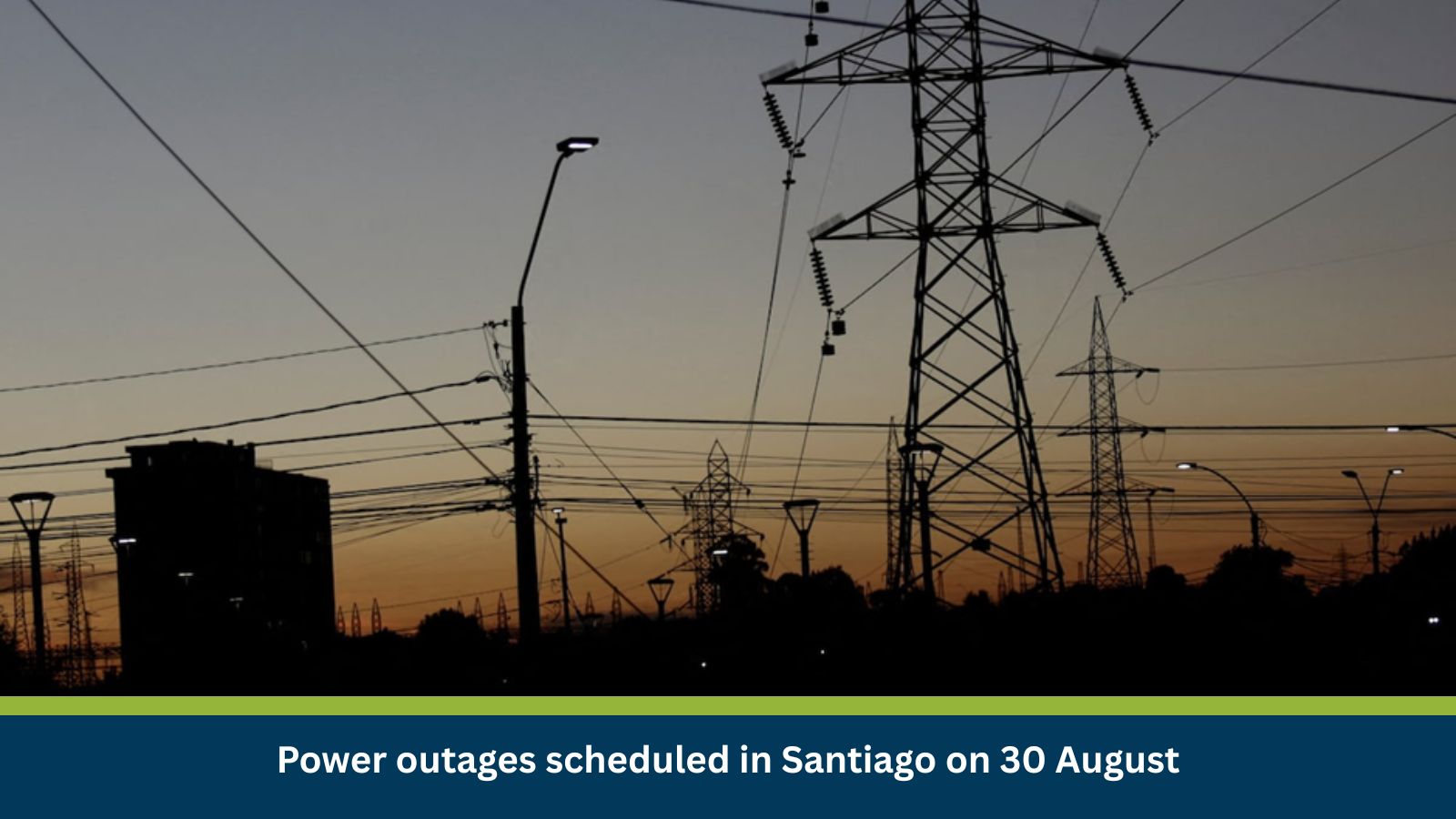What is Risk Analysis in the Context of Critical Infrastructure Events?
A critical infrastructure event is any incident that disrupts essential services like electricity, water, or telecommunications. In the context of a planned power outage, risk analysis helps businesses and individuals prepare for operational pauses, communication disruptions, and safety issues. This is a common occurrence in urban areas for maintenance purposes, but it requires a structured response to mitigate potential negative impacts on daily life and business operations.
Executive Summary
- Date of Incident: 30 August 2025
- Location: Santiago, Chile
- Risk Category: Critical Infrastructure
- Severity Score: 3/5
- Confidence Level: 85%
Scheduled power outages in Santiago are a recurring operational disruption, and the current planned outages by Enel are expected to last between 5-10 hours per affected zone. The planned nature of the event mitigates a direct threat to life safety, but businesses without backup power will experience operational pauses. The primary impact areas are business continuity, traffic mobility, and communications.
Known Hotspots and Sensitive Areas
Sensitive areas affected by these outages include residential zones with high concentrations of vulnerable populations in communes such as La Florida, Maipú, and Pudahuel. Hospitals and health centers require robust backup power to maintain operations. Traffic congestion is highly probable in affected communes like Las Condes, La Florida, Macul, and Ñuñoa due to non-functional traffic lights.
Impact on Transportation and Services
- Business Operations: Businesses without backup power will experience operational pauses, leading to lost sales, data loss, and disrupted services.
- Travel & Mobility: Traffic lights in affected areas will cease functioning, leading to congestion and increased accident risk. Public transport systems might experience localized delays.
- Communications & IT: Mobile network towers and fixed-line internet services may be disrupted if backup power systems fail, impacting remote work and critical communications.
- Infrastructure & Utilities: The planned outages themselves are for maintenance, but there is a risk of unforeseen complications during re-energization.
- People Safety: Planned outages pose a low direct risk to life, but vulnerable populations may face elevated risks without proper preparation.
- Asset Security: Security systems (CCTV, alarms) may fail without backup power, and power fluctuations upon restoration could damage sensitive electronic equipment.
Recommended Actions
- Prior to the outage, execute controlled shutdowns of non-essential IT systems and ensure all critical data is backed up.
- Implement a temporary remote work policy for employees whose functions can be performed off-site.
- Proactively issue multi-channel advisories to clients, suppliers, and key stakeholders regarding potential service disruptions.
- Verify the functionality and fuel reserves of all backup generators for critical physical assets.
- Implement augmented physical patrols or manual monitoring where electronic surveillance may be compromised.
Emergency Contacts
- Police: 133
- Fire Department: 132
- Ambulance: 131
- National Emergency: 13X
Final Thoughts
The baseline scenario anticipates the scheduled power outages will proceed as planned, with effective management by the utility provider, Enel. A moderate escalation could see the outages prolonged by weather-related complications. A severe escalation, though low probability, could lead to widespread and prolonged unscheduled outages across the grid, a significant concern for critical infrastructure and public safety.
Stay ahead of operational risks with real-time alerts, scenario modeling, and expert advisories with datasurfr’s Predict. Start your 14-day free trial of Datasurfr’s Risk Intelligence Platform today.






